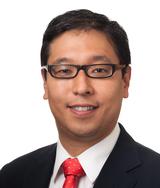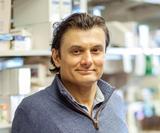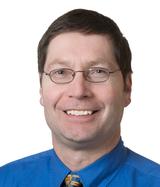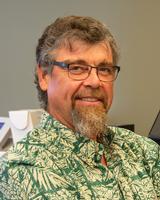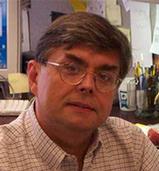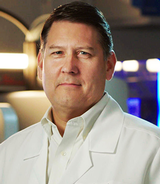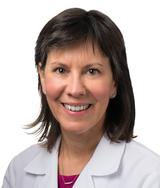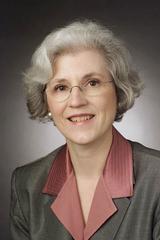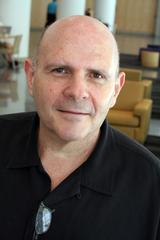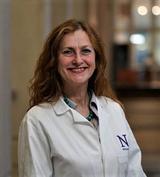Cutaneous Biology Mentors
Strong mentoring is fundamental to producing independent investigators. Each trainee has a laboratory mentor (a T32 Primary Mentor) and three to four other faculty (a T32 Primary Mentor or Resource Faculty) who serve as the mentor team. We also have a unique "Road to Translational Research" mentoring team of dermatology faculty who provide guidance in the translational aspects of research.
Mentored laboratory training is the most important aspect of the program and comprises 80 percent or more effort, depending on the trainee's previous background and experience. Each fellow is assigned to a faculty member who heads his/her laboratory and provides day-to-day guidance. The mentor and fellow formulate hypotheses, approaches to address them, interpret data, write papers and grants and work on presentations. The training period in most cases is two years, although trainees may remain in the preceptor's laboratory for longer periods to gain independence.
Primary Mentors
Primary mentors meet one-on-one with trainees frequently to discuss progress and provide the trainee with the opportunity to discuss career progress as well as their Individual Development Plan (IDP).
Choi, Jaehyuk
Adjunct Professor, Dermatology (Medical Dermatology)
Lavker, Robert M
Professor Emeritus, Dermatology
Paller, Amy S
Professor, Dermatology, Pediatrics (Dermatology)
Budunova, Irina V
Professor, Dermatology, Urology
Chandel, Navdeep S
Professor, Medicine (Pulmonary and Critical Care), Biochemistry and Molecular Genetics
Green, Kathleen J
Professor, Pathology (Experimental Pathology), Dermatology
Hauser, Alan R
Professor, Microbiology-Immunology, Medicine (Infectious Diseases)
Hope, Thomas J
Professor, Cell and Developmental Biology, Obstetrics and Gynecology
Laimins, Laimonis A
Professor, Microbiology-Immunology
Longnecker, Richard M
Professor, Microbiology-Immunology
Meade, Thomas J
Professor, Radiology
Professor, Weinberg College of Arts and Sciences
Miller, Stephen D
Professor Emeritus, Microbiology-Immunology
Mirkin, Chad A
Professor, Medicine (Hematology and Oncology)
Professor, Weinberg College of Arts and Sciences
Rogers, John A
Professor, Dermatology, Neurological Surgery
Professor, McCormick School of Engineering
Schleimer, Robert P
Professor Emeritus, Medicine (Allergy and Immunology)
Troyanovsky, Sergey M
Professor, Dermatology, Cell and Developmental Biology
Junior Mentors
Resource Faculty
Ameer, Guillermo A
Professor, Surgery (Vascular Surgery)
Professor, McCormick School of Engineering
George, Jr., Alfred L.
Professor, Pharmacology
McNally, Elizabeth M
Professor, Medicine (Cardiology), Biochemistry and Molecular Genetics
Mitchell, Brian J
Associate Professor, Cell and Developmental Biology
Muller, William A
Professor, Pathology (Experimental Pathology), Pathology (Autopsy)
Perlman, Harris R
Professor, Medicine (Rheumatology)
Quaggin, Susan E
Professor, Medicine (Nephrology and Hypertension)
Robinson, June K
Professor Emeritus, Dermatology
Schumacker, Paul T
Professor, Pediatrics (Neonatology), Cell and Developmental Biology, Medicine (Pulmonary and Critical Care)
Shilatifard, Ali
Professor, Biochemistry and Molecular Genetics, Pediatrics
Professor, Weinberg College of Arts and Sciences
Stupp, Samuel I
Professor, Medicine (Endocrinology)
Professor, McCormick School of Engineering, Weinberg College of Arts and Sciences
Thaxton, Colby S
Associate Professor, Urology
Vaughan, Douglas E
Professor, Medicine (Cardiology)
Le Poole, I. Caroline
Professor, Dermatology, Microbiology-Immunology
Road to Translational Research Mentors
This unique team of dermatology faculty conducts workshops, didacts and one-on-one meetings with all T32 trainees to provide guidance in the translational aspects of their research. Through interactions with the Road to Translational Research mentoring team, all trainees become familiar with the process of moving forward in translational research.
Paller, Amy S
Professor, Dermatology, Pediatrics (Dermatology)
Rangel, Stephanie
Associate Professor, Dermatology
Robinson, June K
Professor Emeritus, Dermatology
Lu, Kurt Q
Professor, Dermatology
Performance Monitoring & Evaluation
For every trainee, we develop a formalized, individual mentoring plan that focuses on their research goals, skills to be acquired and professional development ambitions of the two-year fellowship program (sample training plan). Each trainee is also given a checklist (sample checklist) of requirements and expectations to be completed during the training. This list is reviewed at least quarterly with the trainee’s preceptor and semi-annually with program director Robert M. Lavker, PhD.
To ensure that all trainees receive appropriate training and are making adequate progress in their endeavors, continuous evaluation occurs at laboratory meetings, regular meetings with mentors/ mentoring teams and research seminars. Primary mentors meet one-on-one with trainees frequently to discuss progress and provide the trainee with the opportunity to discuss career progress as well as their Individual Development Plan (IDP). All trainees also meet in separate meetings with Lavker and co-director Amy S. Paller, MD, to allow discussion about the laboratory experience and for further pre-career counseling. In addition to the primary mentor, physician-scientists also have a clinical mentor from the senior clinical faculty in dermatology who provides counseling and career guidance.
We continue to mentor our T32 trainees after their training period is complete; we hold annual joint meetings of past and present trainees, to which past trainees still with the Feinberg School of Medicine detail their progress since finishing the program. For those that leave Feinberg, we track their progress and offer guidance every six months. This emphasis on mentoring is shared at the institutional level, as evidenced by Northwestern’s efforts to teach postdoctoral fellows and junior faculty effective mentoring practices.
In an effort to continuously monitor the training experience, mentors and the overall program, trainees complete an online evaluation form, which is anonymously and electronically submitted to the director of the program.
